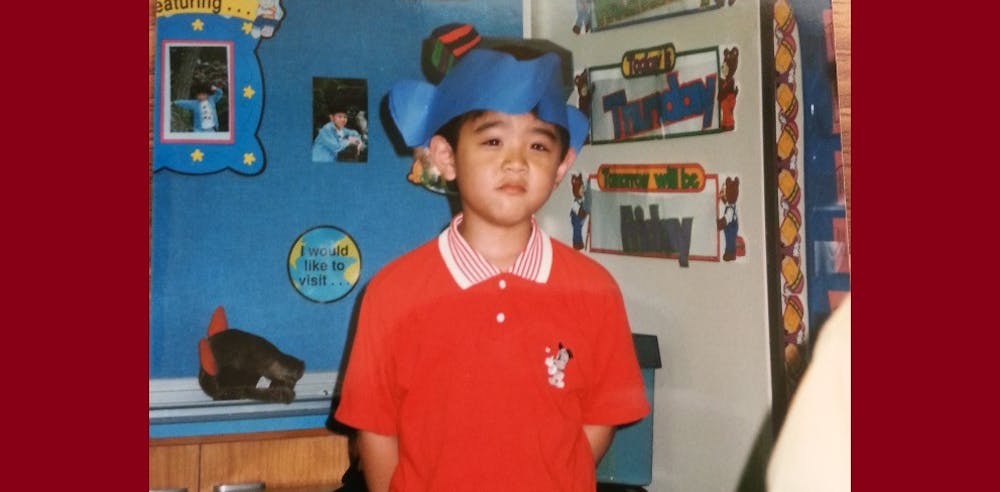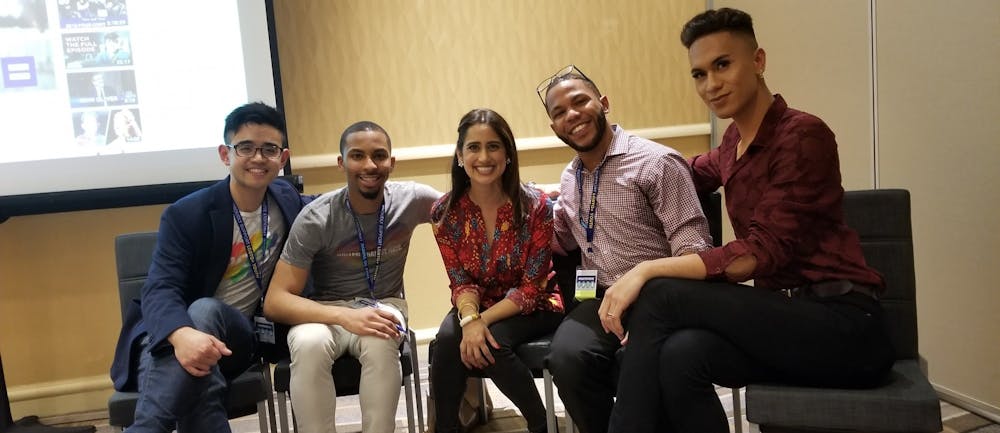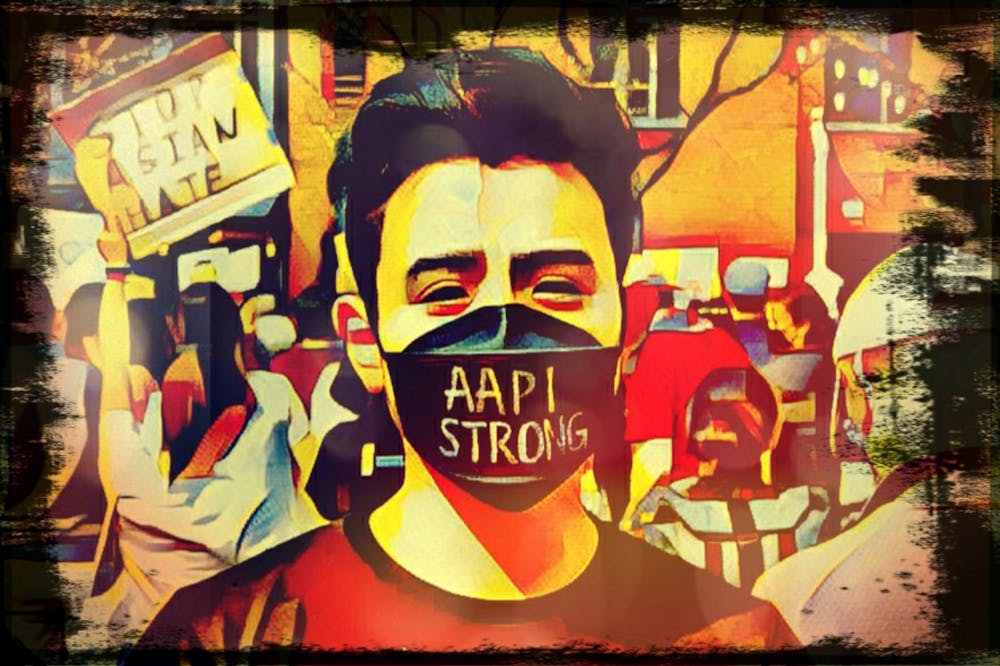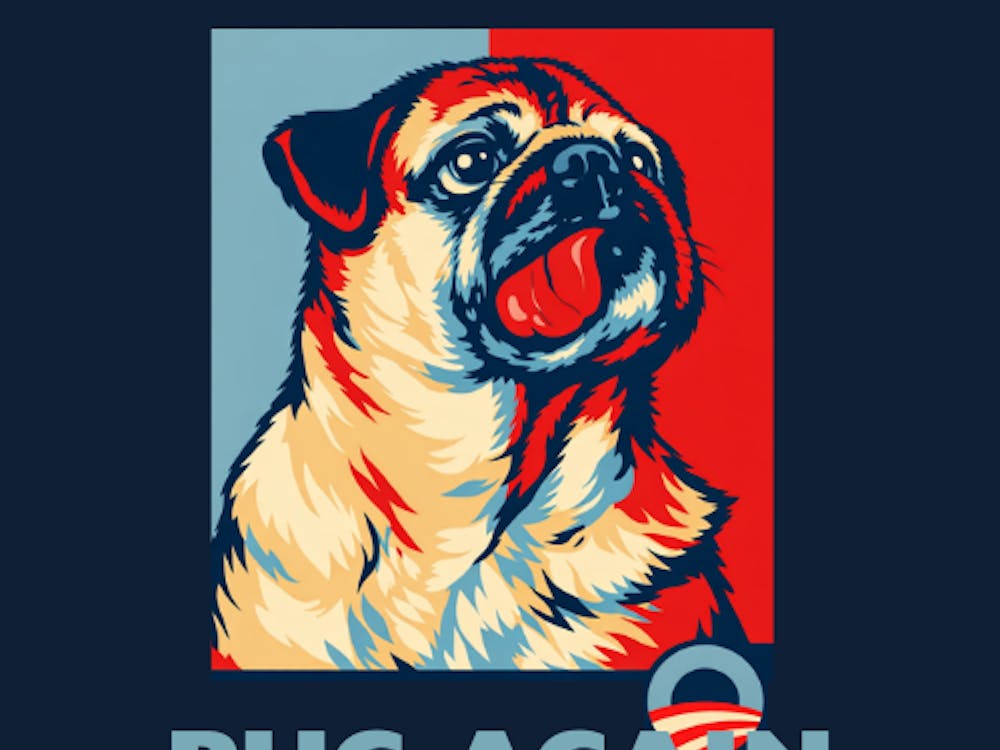“You know that mask you’re wearing doesn't actually protect you, right?” a classmate asks me in February 2020.
Unable to form a cogent reply to him on the spot, I make my way to my health policy class. My professor encourages me to update everyone on the newly named COVID-19 virus, knowing I'd been closely following the news in Asia for over a month.
I report on alarming outbreaks in South Korea, Iran, and Japan, and how countries were already taking proactive measures to protect their citizens. I tell of the tragic videos I'd watched from Wuhan and central China, of families begging for help for their loved ones at overrun hospitals. They’re conveying their distress in Mandarin, the language I speak at home with my parents.
A row of white faces looks back at me, unimpressed. What, after all, are a few hundred dead bodies in foreign places that they can’t even pronounce?
I can feel the heat of a fire burning just outside the classroom door, my peers oblivious to its telltale signs. It’s not a virus closing in, but a centuries-old inferno even more deadly. If I wear a mask, will it shield me from the fumes? What about the flames?
By March, Asians are getting beat up on the street for wearing face coverings. A college acquaintance is brutally attacked and hospitalized in a coma for several days. The U.S. government has yet to institute a nationwide mask order, and I consider if I should stop wearing my own to avoid the same violent fate.
A year later, I now wonder if choosing to wear a brightly colored mask might deracialize my physical appearance when I’m walking in public. I ponder if studying outside in the sun will darken my skin enough to look racially ambiguous and make me less likely to become a victim of an anti-East Asian assault. If only violence were that simple.
It’s hard to describe what a lifetime of gaslighting feels like.

For many of us, the fresh ink on our birth certificates sprays like lighter fluid, ensnaring and inflaming our tongues before we can even speak. A respectable American name, like Michael or Jennifer, conquers generations of ancestors. The capitalized Roman letters permanently sear my newborn skin, cauterizing the fresh wound.
“It's cleaner this way,” I imagine the discharge nurse telling my parents, “and he'll be just like the other boys at school.”
In second grade, a classmate with Chinese parents taunts me, saying that I’ll never be a real American. “You’re wrong! I am American,” I shout back, tears welling. My throat and vocal cords seem to burn as I flawlessly recite the words, English long having supplanted my mother tongue.
In fifth grade, I learn about the incarceration of Japanese Americans through a book I find at the Scholastic Book Fair, titled “The Journal of Ben Uchida: Citizen 13559, Mirror Lake Internment Camp”. It's my first time reading a story where the main character is an Asian American boy like me. I begin wondering what might happen to my own family if the United States were to go to war against China. For nearly a month, I have a recurring nightmare where all the boys at my weekend Chinese school are rounded up and executed by beheading.

“Maybe we’ll be safe. We’re Taiwanese and not Chinese, after all,” I tell myself reassuringly, an ashy haze filling my brain. The crackling of cinders drowns out a second voice, whispering ever clearly: As if they care enough to tell the difference…

Mark Lee “learning” about Columbus Day in elementary school, late 1990s.
Mark Lee / The Daily Princetonian
I do everything “right,” just like the model minority myth says I should. I graduate college and land a job at a consulting firm founded by a former Secretary of Homeland Security. My starting salary is higher than my mother’s at any point while she was raising our family of four. At my first client meeting, I walk in wearing a discount suit, wielding printed copies of professional looking PowerPoint slides.
The company’s CEO sizes me up, “You know, I wish my kids worked hard like you Asians, you must be real smart.” I chuckle awkwardly and smoothly change the subject, but I can feel the smoke coming out of my ears.
I’m at a club, surrounded by undercuts and luxury gym memberships. The deafening music and tantalizing male gaze sets the room alight, and it’s hard to breathe. I spot another Asian, but he and I avert our eyes.
Moments later, a white boy walks up and appraises my body, gazing up and down. “You're pretty hot for an Asian,” he says approvingly. I flash him a smile and move closer. My lips ignite, and I can feel them melting from the inside out.
I’m fumbling in the dark, the suffocating smoke shrouding my eyes as the heat grows more intense. “I'm not going to hear you complain about this again,” a white friend rolls his eyes. “You’re making a big deal out of nothing.”
Maybe he's right, think about your relative privilege and proximity to whiteness. By now, my internal monologue is so well-rehearsed, accustomed to suppressing dehumanizing experiences at work, social events, and dating apps.
The flames are boiling my lungs, and I want to scream. Am I crazy? Or am I being burnt alive? Either way, am I allowed to express it?
A cool, understanding voice wakes me up like a gentle splash of cold water. I’m at a new job working on LGBTQ+ rights, on a brand new team tasked with leading the organization’s racial justice portfolio. My Black lesbian boss looks me squarely in the eye. “You’re not crazy. And it’s not okay that you’re being treated this way.”
I find myself at a table of 30 coworkers enveloped by warm brown eyes and glowing melanin. It's the biweekly lunch meeting for employees of color and I'm the only East Asian in the room. I wonder aloud, “I mean… when we say we're fighting for Black and Brown lives… do I count in that?”
A gay Latino middle manager answers immediately — not just through his words but with an always open office door and dozens of intentional gestures. “You belong here. And your experiences are real and valid,” he says calmly. My BIPOC coworkers nod affirmatively, and for the first time in my life I feel seen.

Mark Lee (left) participating in a panel on supporting LGBTQ youth of color at the Time to THRIVE Conference, February 2019
Photo courtesy of Liam Miranda
I arrive at graduate school labeled as an “overrepresented” “minority,” a welcoming reminder that to some white higher education administrators my very presence threatens their idealized vision for “equality.” From my one and only Black professor at Princeton, I learn about the racial triangulation of Asian Americans, describing how we are weaponized by white supremacy to uphold racist systems and structures. I read about the Chinese Massacre of 1871, one of the largest mass lynchings in U.S. history, and discover that Asians have the highest poverty rate in New York City.
I volunteer to serve as a Diversity, Equity, and Inclusion student representative at the School of Public and International Affairs. From the workshops I organize to help fill the gaping holes in our curriculum, I learn about the difference between assimilationist and anti-racist policy. Finally, I’m granted access to the vocabulary, ideas, and histories previously gatekept from me that affirm my lifelong experiences.
Suddenly, it’s March 2021. Half a million Americans have died, their needless deaths blamed on a “China virus.” Eight people, six of them Asian immigrant women, are shot dead in a mass killing spree at three intentionally selected locations in metro Atlanta. Before we know the names of the victims, The New York Times publishes an apologetic account of the murderer, emphasizing “his Christian faith and his relationship with God and his parents.”
A few days later, a 70-year-old Asian man is assaulted while taking a walk, just a few minutes away from my parents' house. A video goes viral of a man in New York kicking an Asian woman to the ground as bystanders do nothing. The victim is 65, the same age as my mother.
It feels nearly apocalyptic, like I’m once again surrounded by scorching, racist, and destructive flames, the classmates around me barely seeming to notice. But this time, something feels different.
Around the country, I see a new movement of Asian Americans who refuse to silently swallow our pain. For the first time, friends are bravely and boldly speaking up, writing about racist harassment they’ve received in the past year and “minor feelings” they’ve endured throughout their lives. Activists are calling for multiracial solidarity with other communities, with elders reminding us that Asian Americans have been active leaders in anti-racist organizing for generations.
I glance down at my hands. They’re still intact, and I can run my fingers through the dancing flames. Even if everything around me is burning, I remain resolutely whole.
Today, I'm still wearing my KF94 mask to protect others, but I’ve shed my other mask — the one I wore to convince myself and others that the flames weren’t real. They are real, and the world is on fire — both literally, but also within the millions of minds that white supremacy and racial capitalism set ablaze centuries ago.
I take a deep breath and look around. Now, I join countless others to say: we refuse to let you minimize our pain, and we refuse to be burned.
Mark Minshen Lee | 李明軒 (he/him/他) is a Master of Public Affairs candidate at the Princeton School of Public and International Affairs from Irvine, Calif. He can be reached at markml@princeton.edu.








